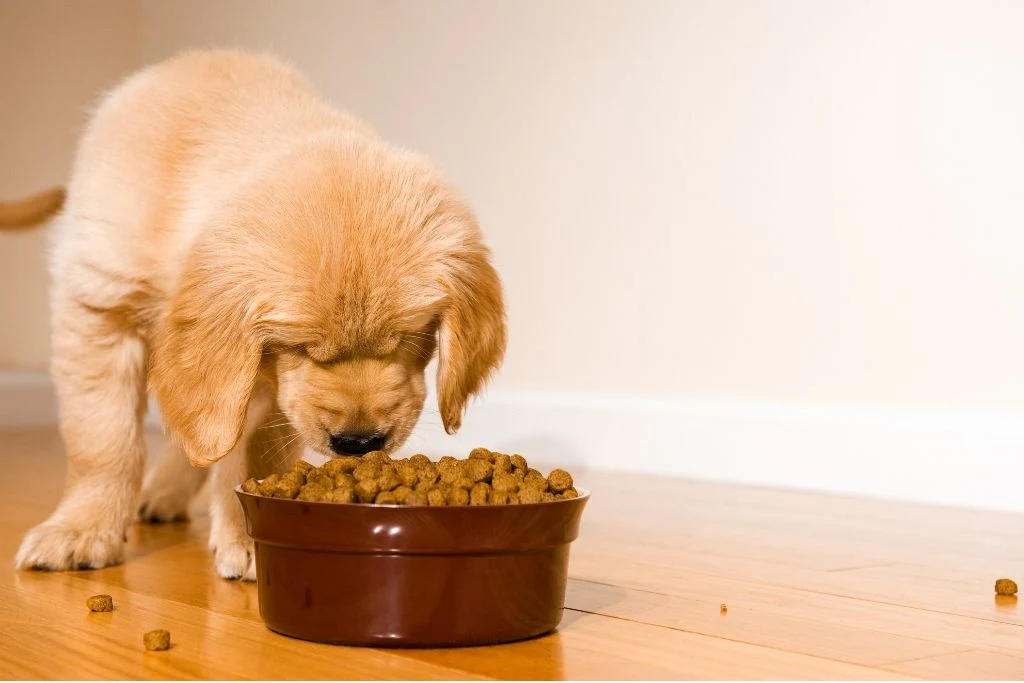Grain-free puppy diets have become increasingly popular among pet owners who want the best nutrition for their furry friends. While there are several potential benefits, there are also some downsides to consider. In this comprehensive guide, we will explore the pros and cons of grain-free puppy diets to help you make an informed decision about the best dog foods for your puppy.
What Are Grain-Free Puppy Diets?
Grain-free puppy diets are formulated without grains such as wheat, corn, rice, barley, and oats. Instead, these diets use alternative sources of carbohydrates, such as potatoes, peas, and lentils. The idea behind grain-free diets is to mimic a more natural, ancestral diet that a dog might have eaten in the wild.
Pros of Grain-Free Puppy Diets
Improved Digestion
- Easier on the Stomach: Some puppies have sensitivities or allergies to grains, which can cause digestive issues like diarrhea or gas. Grain-free diets can alleviate these symptoms.
- Better Absorption: Grain-free diets often include high-quality proteins and fats, which are more easily absorbed by a puppy’s developing digestive system.
Higher Protein Content
- Muscle Development: Grain-free diets typically contain more protein than traditional puppy foods, which supports muscle growth and overall development.
- Energy Levels: The higher protein content can provide sustained energy levels, essential for active and growing puppies.

Shinier Coat and Healthier Skin
- Omega Fatty Acids: Many grain-free diets include ingredients rich in omega-3 and omega-6 fatty acids, which contribute to a shiny coat and healthy skin.
- Reduced Allergies: By eliminating common allergens found in grains, these diets can reduce itching and skin irritations.
Cons of Grain-Free Puppy Diets
Potential Nutritional Imbalance
- Lack of Grains: Grains are a source of essential nutrients, including vitamins, minerals, and fiber. A grain-free diet might lack these nutrients, potentially leading to deficiencies.
- Need for Supplementation: Some grain-free diets may require additional supplements to ensure a balanced nutritional profile.
Higher Cost
- Premium Pricing: Grain-free puppy foods are often more expensive than traditional puppy foods due to the higher quality and often more exotic ingredients.
- Budget Considerations: The increased cost can be a significant factor for pet owners, especially when feeding larger breeds that require more food.
Possible Link to Heart Disease
- FDA Investigation: The FDA has been investigating a potential link between grain-free diets and dilated cardiomyopathy (DCM), a type of heart disease, in dogs. Although the evidence is not conclusive, it is a concern for many pet owners.
- Veterinary Guidance: Consulting with a veterinarian is crucial before making any dietary changes, especially if you are considering a grain-free diet for your puppy.
Is a Grain-Free Puppy Diet Right for Your Pet?
When choosing the best dog foods for your puppy, it’s essential to consider both the pros and cons of grain-free diets. Every puppy is unique, and what works for one may not work for another. Here are some tips to help you decide:
Consult Your Veterinarian
- Professional Advice: Always seek the advice of your veterinarian before switching to a grain-free diet. They can provide insights based on your puppy’s specific health needs and conditions.
- Monitor Health: Regular check-ups will help ensure your puppy is thriving on their new diet and not developing any health issues.

Consider Your Puppy’s Specific Needs
- Allergies and Sensitivities: If your puppy has shown signs of grain allergies or sensitivities, a grain-free diet might be beneficial.
- Activity Level and Breed: Active puppies and certain breeds may benefit more from the higher protein content of grain-free diets.
Trial and Observation
- Gradual Transition: Introduce the new diet gradually to monitor how your puppy reacts. Look for improvements in digestion, coat quality, and energy levels.
- Track Progress: Keep a diary of your puppy’s health and behavior changes to share with your veterinarian.
Conclusion
Choosing the best dog foods for your puppy is a critical decision that impacts their growth and overall health. Grain-free puppy diets offer several advantages, such as improved digestion, higher protein content, and healthier skin and coat. However, they also come with potential drawbacks, including nutritional imbalances, higher costs, and concerns about heart disease. By carefully weighing the pros and cons and consulting with your veterinarian, you can make an informed choice that ensures your puppy thrives on the right diet for their needs.





















